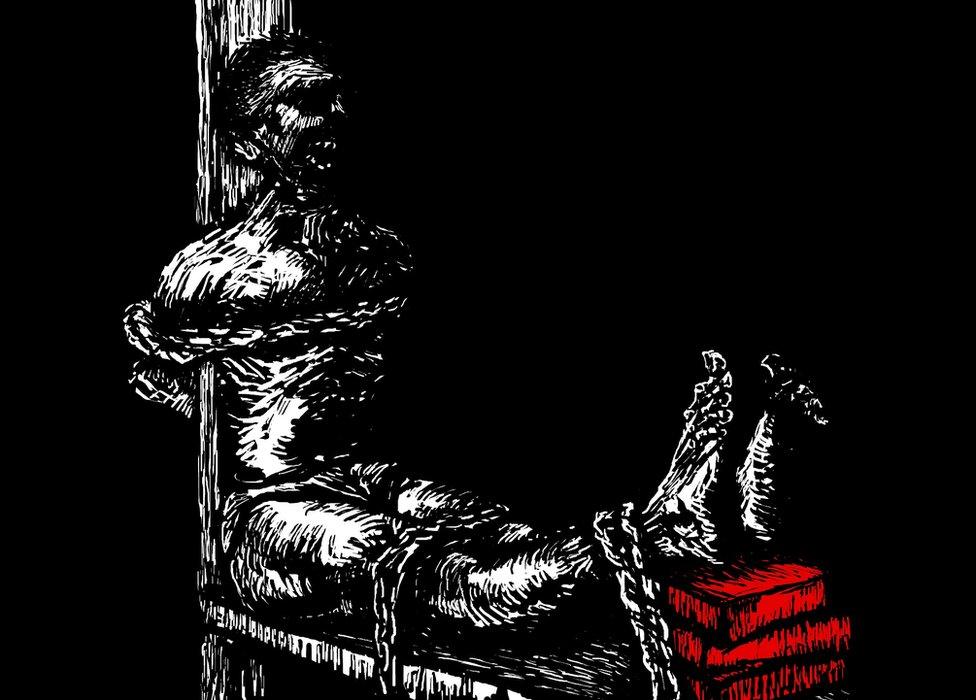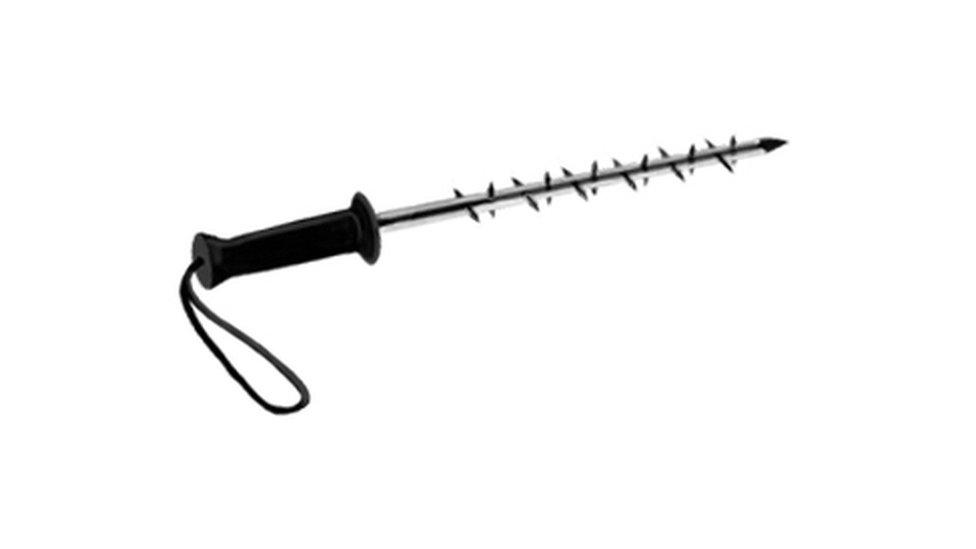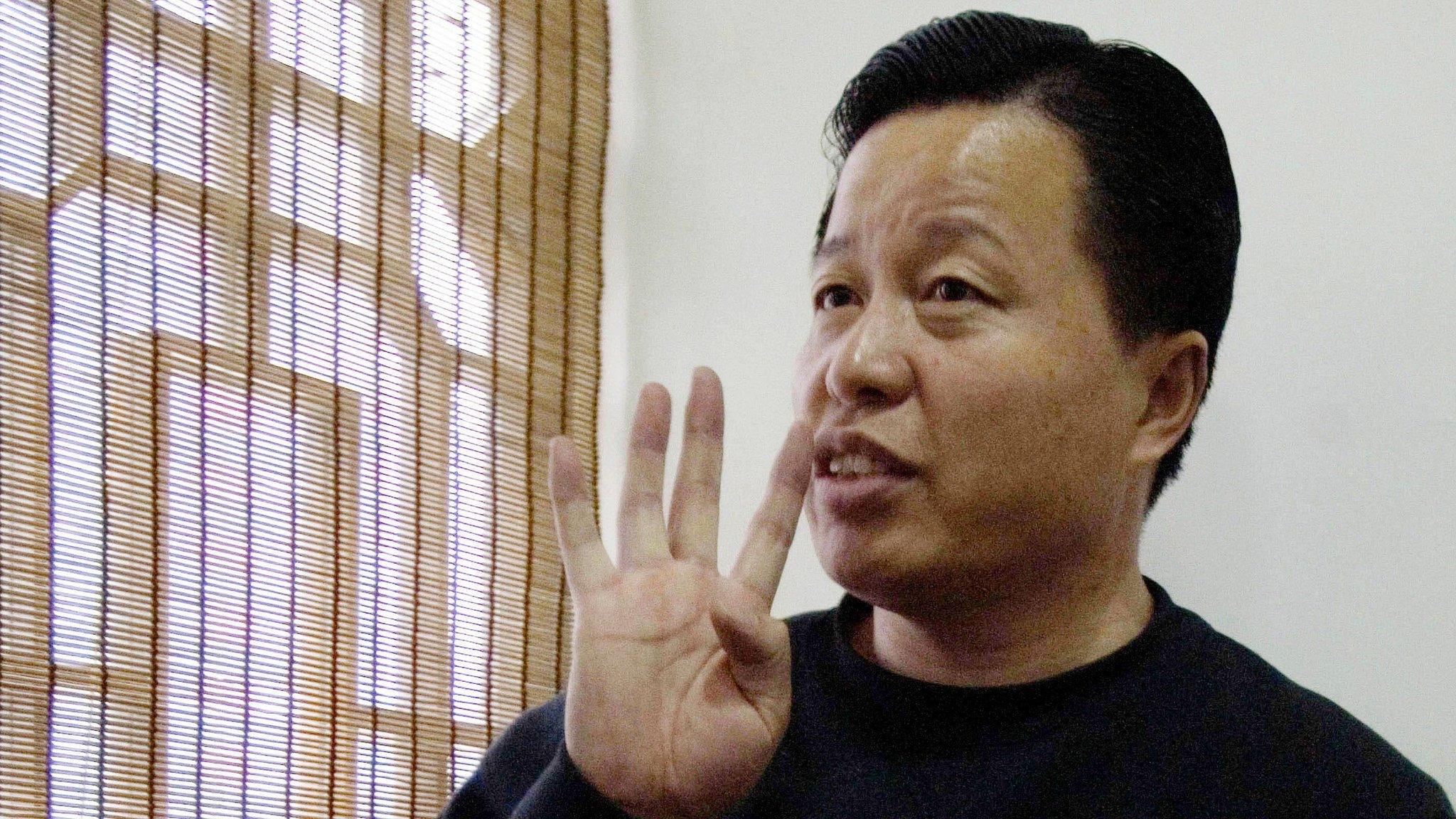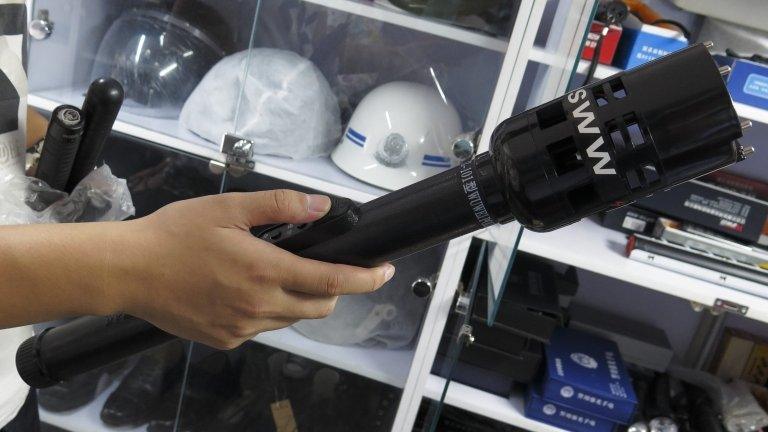Report details widespread Chinese torture in police detention
- Published
Celia Hatton met a lawyer who said he was tortured by Chinese police
The torture of suspects in police detention is widespread in China with implements like spiked rods and torture chairs regularly deployed to extract confessions, a report alleges.
The Amnesty International report is based on interviews with nearly 40 Chinese human rights lawyers.
Despite China's top court banning torture in 2013 and criminal justice reforms, rights groups say the practises are still widely used.
Chinese authorities have not responded.
After similar allegations by Human Rights Watch in May, the foreign ministry said Chinese law prohibited torture during interrogation.

An artist impression of a "tiger bench" or "tiger chair"

Illustration of a Chinese manufactured spiked baton
The report describes suspects being slapped, kicked and hit with shoes or with bottles filled with water.
It also details tools of torture including "'tiger chairs' in which individuals' legs are tightly bound to a bench, with bricks gradually added under the victim's feet, forcing the legs backwards as well as long periods of sleep deprivation and the denial of sufficient food and water.
Amnesty said that for police, obtaining a forced confession is still considered the easiest way to secure a conviction.
The author of the report, Patrick Poon, said local officials and police "continue to pull the strings of China's criminal justice system. Despite defence lawyers' best efforts, many claims of torture are simply ignored".
The report comes a week before China's human rights record is set to be reviewed by the United Nations anti-torture committee in Geneva.
- Published24 September 2015

- Published23 September 2014
